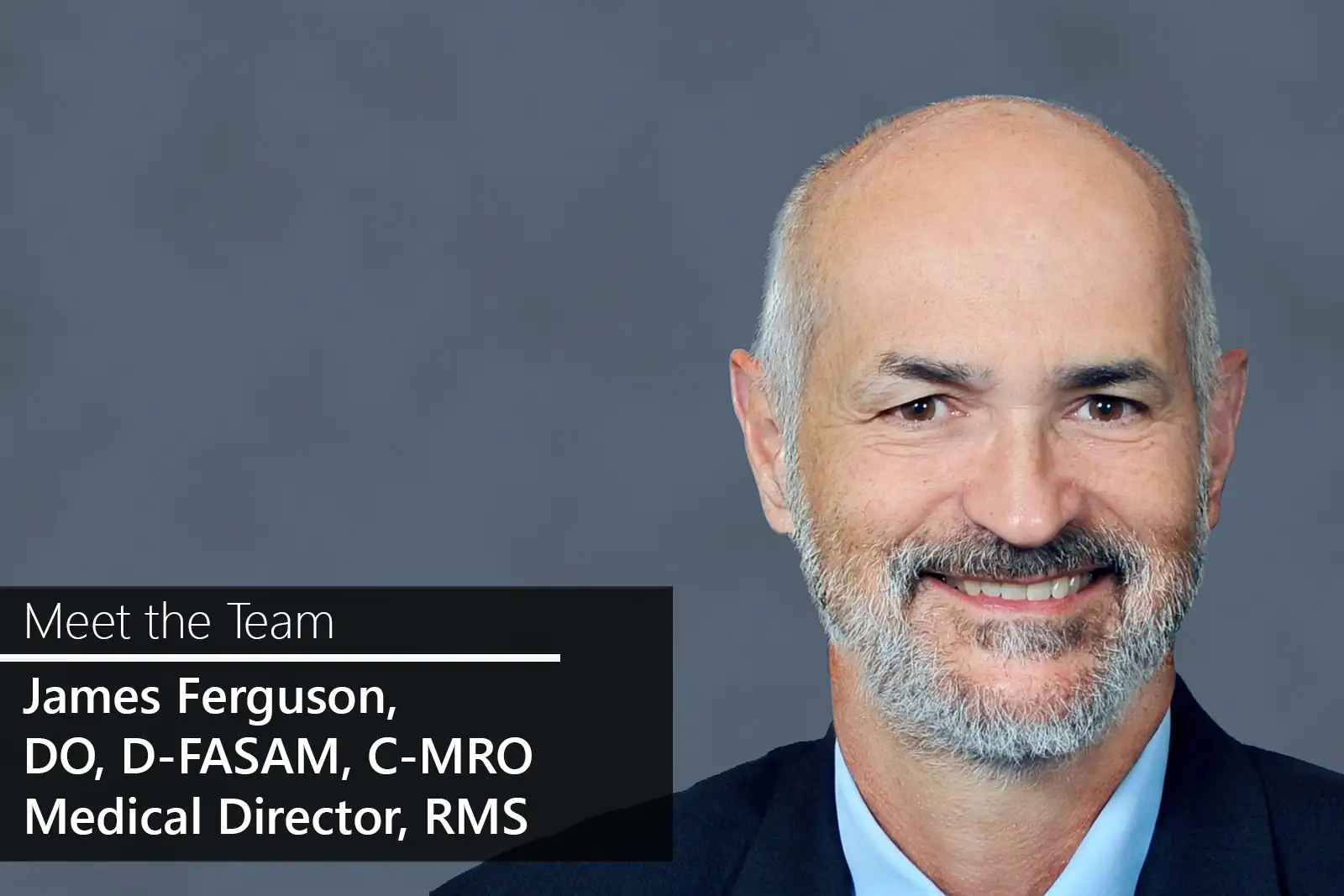In today's Meet the Team post, you'll meet James Ferguson, DO, D-FASAM, C-MRO, Vault's Medical Director of Recovery Management Services. We had the chance to chat with Dr. Ferguson and learned more about his background, the trends and changes he's noticed in Professional Health Monitoring since the pandemic, and how Vault has addressed them.
Hi Dr. Ferguson, thanks for taking the time to chat with us. Can you tell our readers more about your background?
I am the Medical Director, Recovery Management Services at Vault Health, My 40-year medical career has been dedicated to diagnosis, treatment and the monitoring of people suffering from drug and alcohol misuse in a variety of ways including drug testing, and positions ranging from emergency room physician to private practice to Chief Medical Review Officer (MRO). I am a certified MRO, an American Society of Addiction Medicine (ASAM) Diplomate and Distinguished Fellow, and a National Board of Osteopathic Examiners Diplomate.
Your background is very interesting, can you explain more about how your addictions background and MRO experience come together in your role with Vault?
In spite of the name “Workplace Services,” Vault is trying to provide services that touch every aspect of Addiction Medicine from early recognition to recovery monitoring. Earlier studies have shown that 95% of those testing positive on routine workforce testing may indeed have a substance use disorder. While public safety is the major reason workforce testing came into being, the need to non-judgmentally identify those suffering from a lifelong illness and incentivize their entrance into the therapeutic community is also paramount. There cannot be a testing service that calls itself “complete” and does not provide an objective framework to monitor recovery and ultimate return to health and a productive life both in the workforce and the community at large.
What are some trends you have noticed in Professional Health Monitoring since the pandemic? Anything new or different?
We have seen referrals to monitoring programs decrease since the pandemic. At the same time, medically authorized amphetamine and cannabinoid positives have increased. Additionally, laboratory testing options meant to address ease of collection have increased, without adequate peer reviewed data regarding cutoffs. testing panel inclusions, or chain of custody integrity. Another observation is that the number of physicians interested in MRO careers has drastically decreased.
How has Vault helped address these trends you’ve noticed?
Vault used a collaborative approach among different team members with special knowledge of different aspects of forensic testing to take a relatively insecure remote collection process and upgrade it to a level of forensic defensibility that would best serve the interests of recovery monitoring and our clients. We employed and trained collectors and held them to the highest standards of observed oral fluid and PEth blood spot remotely monitored collection. To date there have been no laboratory rejections of remotely collected specimens because of collector error.
Ok, we’ve talked a lot about work. What else are you passionate about?
My family, my life, and the state of the world.
About Dr. Ferguson
Since the beginning of my career, I’ve worked as an emergency room physician, in medical centers and hospitals, and in private practice. I was Associate Medical Director for Northwest Treatment Center for Drug and Alcohol Abuse and a consultant for Washington State Department of Social and Health Services (1982-1985). I became a Commissioned Officer of the U.S. Public Health Service from 1986-1988 and served as Chief of Health Programs at Sandstone Federal Correctional Institution in Minnesota. Returning to Washington and urgent care, I served in a community health, minor emergency and occupational medicine center where I created its MRO program (1988-1995). Since 1995 I have been Chief or Senior MRO at national workplace services providers Employee Health Programs, First Advantage Corporation, and Verifications Inc. I was the course director for the American Society of Addiction Medicine Comprehensive MRO training program from 2003 to 2013 and I currently teach MRO training for the American Osteopathic College of Occupational and Preventive Medicine (AOCOPM) and am on the MRO training faculty for the American College of Occupational and Environmental Medicine (ACOEM). I currently chair the MRO Certification Council (MROCC) Board of Directors. I am a former member of the Substance Abuse and Mental Health Services Administration’s (SAMHSA’s) Drug Testing Advisory Board (DTAB) and industry based the Oral Fluid Advisory Board.

